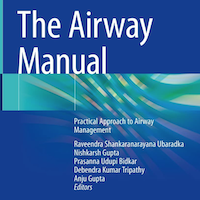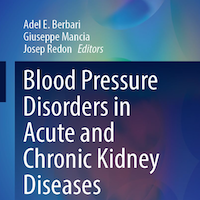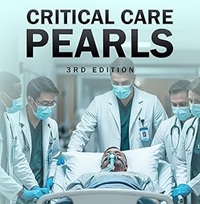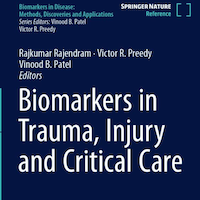Tag: vasopressin
Metabolic Acidosis Worsens Cardiac Function and Vasopressor Needs in Septic Shock
In a prospective observational study conducted from January to December 2024 at Hospital de Especialidades No. 14, IMSS, in Veracruz, Mexico, researchers examined the cardiovascular effects of acute metabolic acidemia in... read more
Vasopressin vs. Norepinephrine in Neonatal Septic Shock
A retrospective multi-center study analyzed the use of vasopressin (VA) and norepinephrine (NE), two distinct pressors, in 58 neonates with warm septic shock across three Canadian Level-III NICUs between 2015 and 2020. The... read more
Vasopressin in Septic Shock: When and How to Use the Second-Line Vasopressor
SSC Guideline Recommendation: The Surviving Sepsis Campaign (SSC) weakly recommends adding vasopressin as a second-line agent instead of continuously escalating norepinephrine if a patient's mean arterial pressure (MAP) remains... read more
The Dual Deception: Amlodipine and Baclofen Overdose Mimics Brain Death and Triggers Cardiogenic Shock
This case study highlights the profound diagnostic challenge and dramatic presentation of a combined-drug overdose involving amlodipine and baclofen, a novel and previously unreported toxicological combination. Toxicological... read more
Coordinated Critical Care: Essential ICU Strategies for Severe Trauma
The effective management of severe trauma patients hinges on seamless, perfect coordination across prehospital care, the trauma bay, and the ICU. Once in the Intensive Care Unit, the primary goals are the prompt control of... read more
VA-ECMO in Septic Shock: A High-Stakes, High-Uncertainty Rescue
The use of Veno-Arterial Extracorporeal Membrane Oxygenation (VA-ECMO) as a rescue therapy for refractory septic shock remains a challenging, context-dependent, and uncertain strategy in adults. Current evidence shows... read more
Vasoactive Guard: Testing Arginine-Vasopressin to Shield Kidneys Post-Liver Transplant
This clinical trial investigates whether a low dose of argipressin (the active substance in REVERPLEG) administered during liver transplantation surgery can help prevent Acute Kidney Injury (AKI), a severe and common post-operative... read more
SOFA-2: Close, But Not Quite the Ideal Measure of Organ Failure
The SOFA-2 (Sequential Organ Failure Assessment) score represents the latest effort to provide a simple, reliable, and continuous measure of organ dysfunction in critically ill patients, a concept first outlined decades ago.... read more
The REGULATE Trial: Finding the Best Blood Pressure Drug for Severe Brain Injury
The REGULATE trial is a crucial, large-scale, randomized study designed to determine the optimal vasopressor (blood pressure medication) strategy for patients with severe traumatic brain injury (TBI). The goal is to see... read more
REGULATE Trial: Norepinephrine vs. Vasopressin – The Head-to-Heart Showdown in Severe TBI
REGULATE is the first adequately powered trial to systematically compare these vasopressor strategies in severe TBI. The results are expected to provide an evidence-based foundation for developing individualized vasopressor... read more
Managing a Critically Ill Patient with HIV, TB, and COVID-19
Treating a patient with HIV, active tuberculosis (TB), and COVID-19 is an immense clinical challenge due to the complex interplay of these three infections. This rare but dangerous combination significantly increases the... read more
Septic Shock Metabolic Subgroups and Clinical Outcome
Three metabolic clusters exist in patients with septic shock with most metabolites differing between clusters and lipid species being most influential. Cluster proportions evolved over time with a high metabolite group... read more
Novel Vasopressor Agent Adoption in Critically Ill Adults
This study aimed to investigate the utilisation of ATII in critically ill adults undergoing vasopressor therapy. The study included patients admitted to ICUs from January 1, 2018, to December 31, 2020, who received intravenous... read more
The Vasopressin Loading for Refractory Septic Shock Study
Vasopressin loading may be safely introduced for septic shock. Vasopressin loading may be used to predict responses to its continuous infusion and select appropriate strategies to increase blood pressure. 92 patients were... read more
Optimal Bundle of Recommendations for Sepsis
The aim of this retrospective cohort study was to identify among the Surviving Sepsis Campaign (SSC) guidelines the optimal bundle of recommendations that minimize 28-day mortality. The bundle of six recommendations is... read more
High Dose Insulin and Euglycemia Therapy for Beta-adrenergic Receptor Treatment and Calcium Channel Antagonists Overdose
High dose insulin with dextrose supplementation is indicated for patients with calcium channel blocker and beta blocker overdose and signs of cardiac toxicity. Mechanisms are not completely elucidated, but mostly related... read more
Septic Shock and Vasopressor Initiation: Why Earlier is Better
An overview of vasopressor management, current evidence and when to initiate vasopressor therapy for best possible patient outcome. Vasopressor management is a cornerstone in the haemodynamic management of septic shock... read more
Equipotent Ratios for the Most Common Vasopressors
Calculating equipotent doses between vasopressor agents is necessary in clinical practice and research pertaining to the management of shock. This scoping review summarizes conversion ratios between vasopressors and provides... read more
Vasopressin and Methylprednisolone vs Placebo on Return of Spontaneous Circulation in Patients With In-Hospital Cardiac Arrest
Among patients with in-hospital cardiac arrest, administration of vasopressin and methylprednisolone, compared with placebo, significantly increased the likelihood of return of spontaneous circulation. However, there is uncertainty... read more
External Corroboration That Corticosteroids May Be Harmful to Septic Shock Endotype A Patients
This exploratory analysis provides further evidence that corticosteroid exposure may be associated with increased mortality among septic shock endotype A patients. We previously reported gene expression-based endotypes... read more
Angiotensin II in Post Cardiopulmonary Bypass Vasoplegia
Post cardiopulmonary bypass vasoplegia is common, and associated with poor outcomes. Traditional management strategies involving escalating doses of catecholamines, vasopressin and adjuncts such as methylene blue and hydroxycobalamin... read more
Broad Spectrum Vasopressors
We propose the notion of "broad spectrum vasopressors" wherein patients with septic shock are started on multiple vasopressors with a different mechanism of action simultaneously while the vasopressor sensitivity is assessed.... read more









